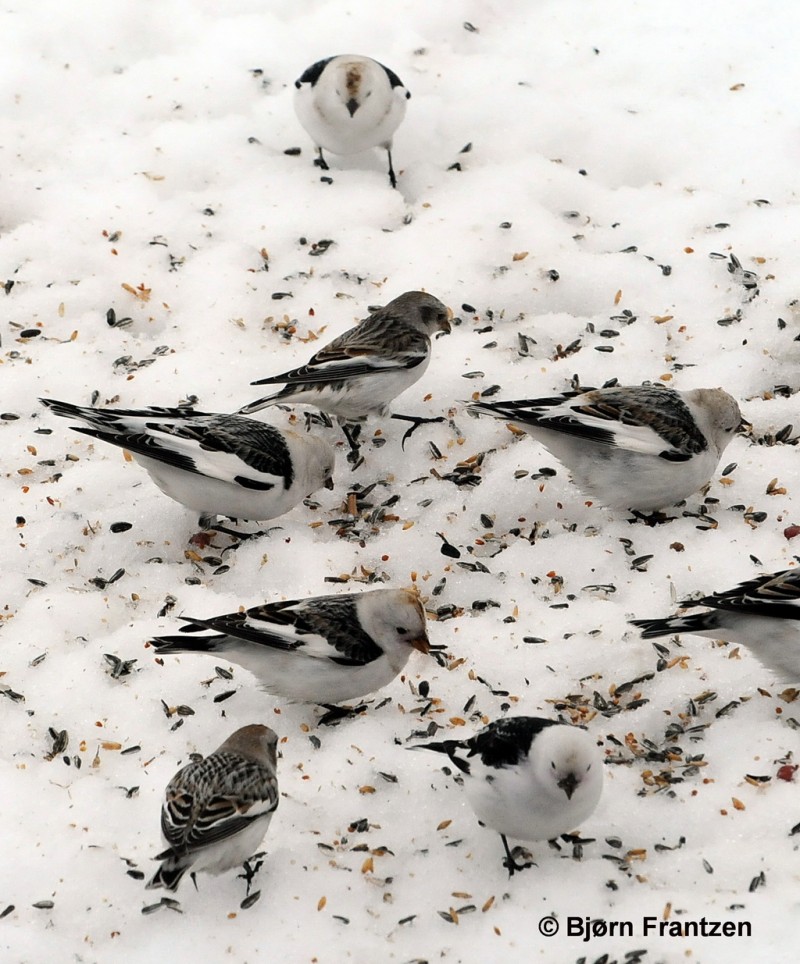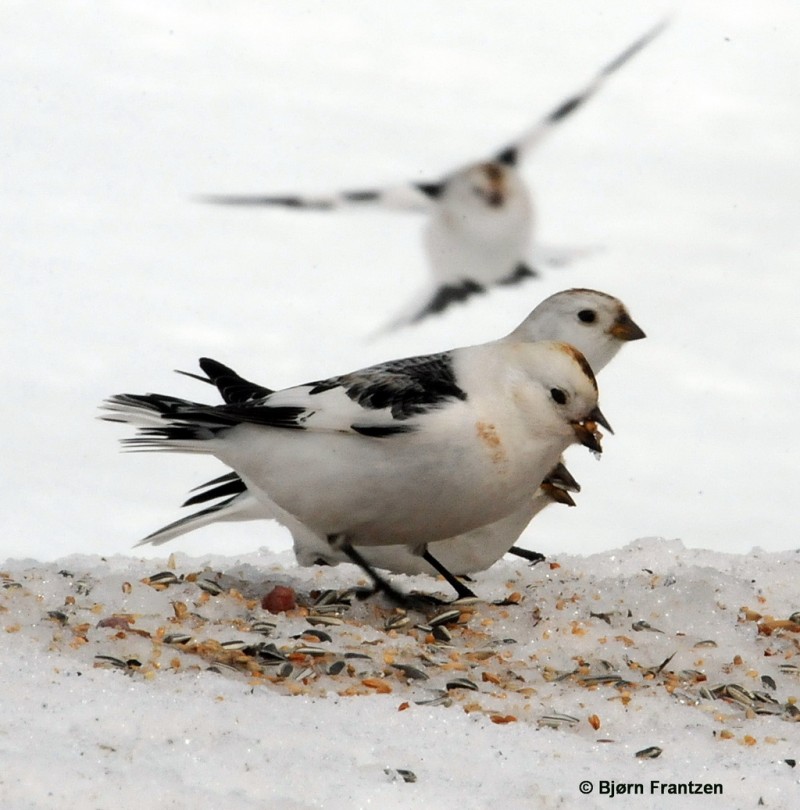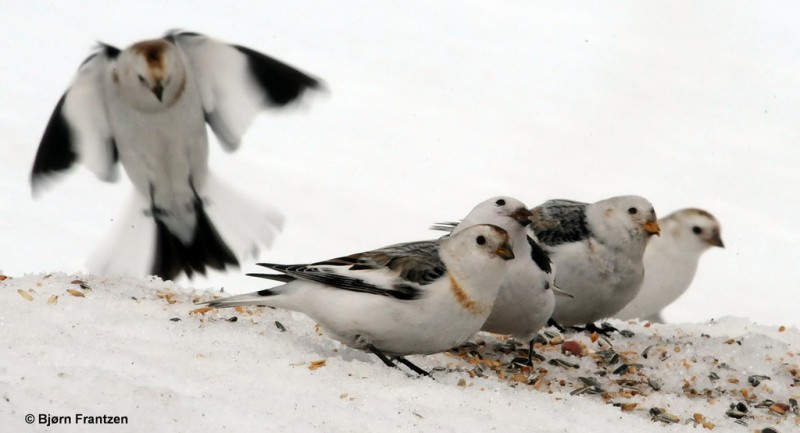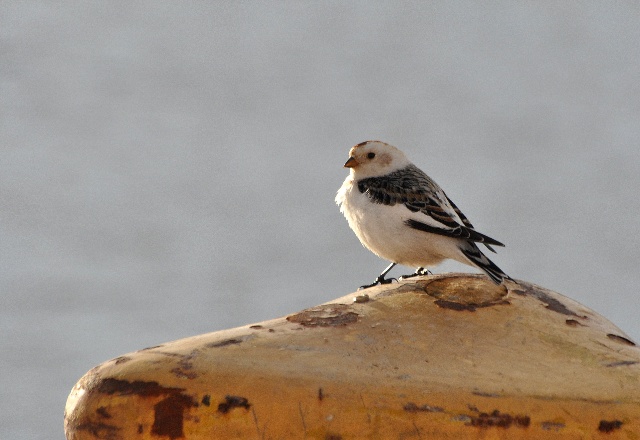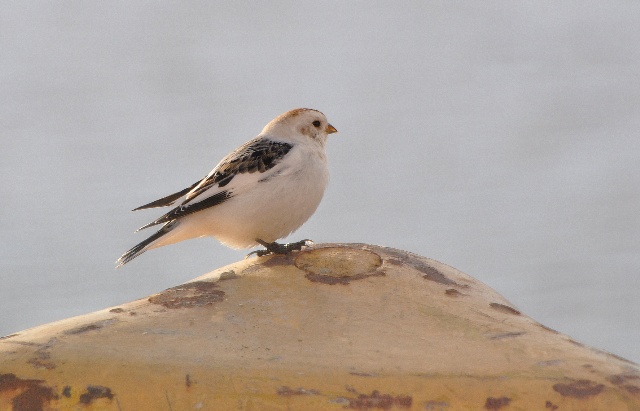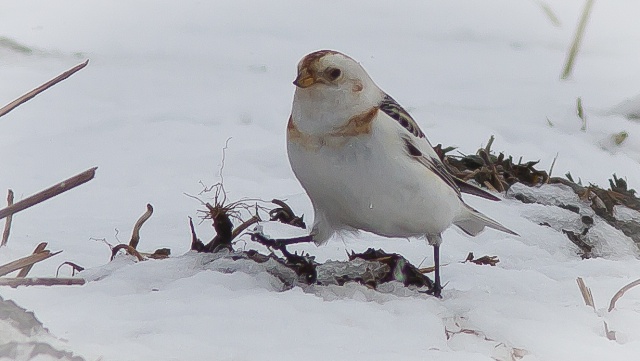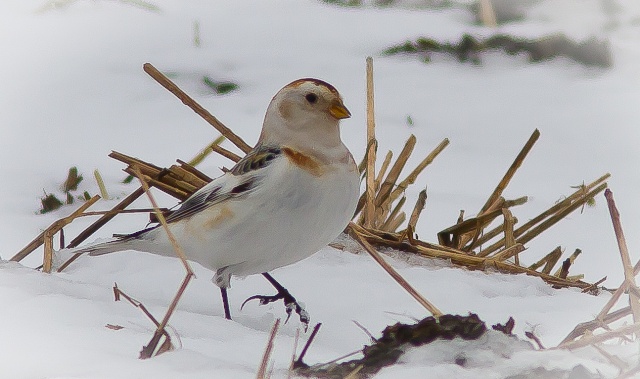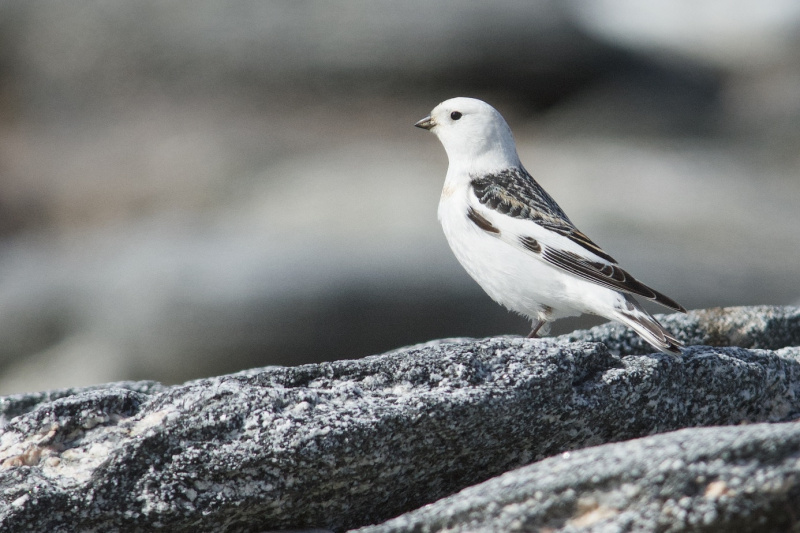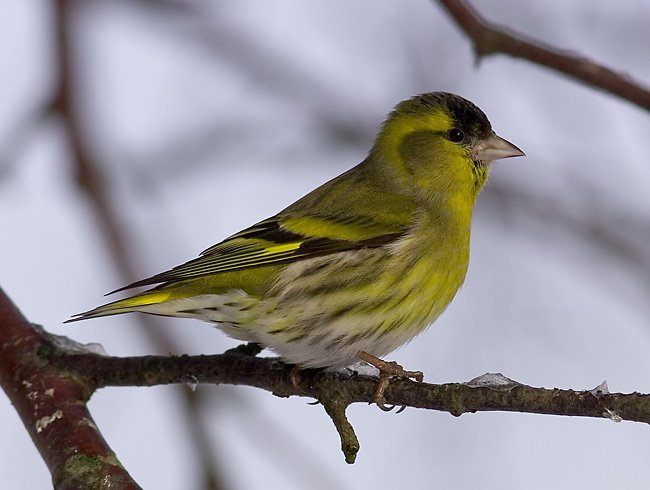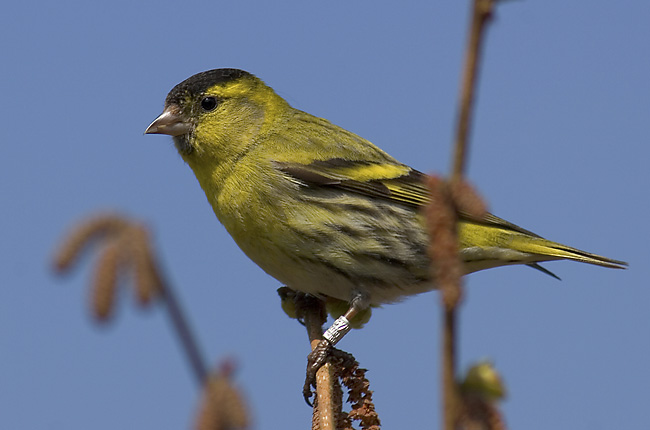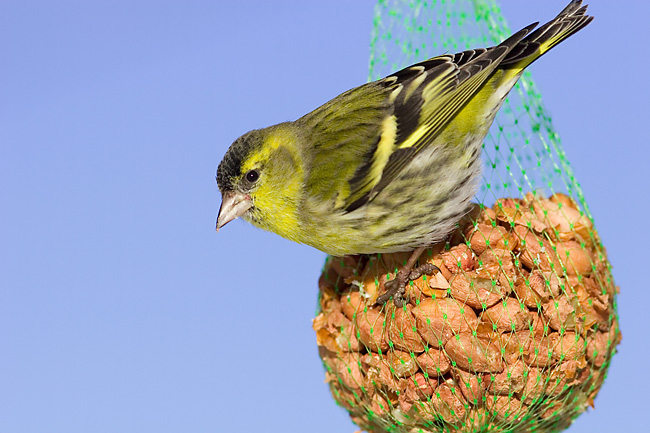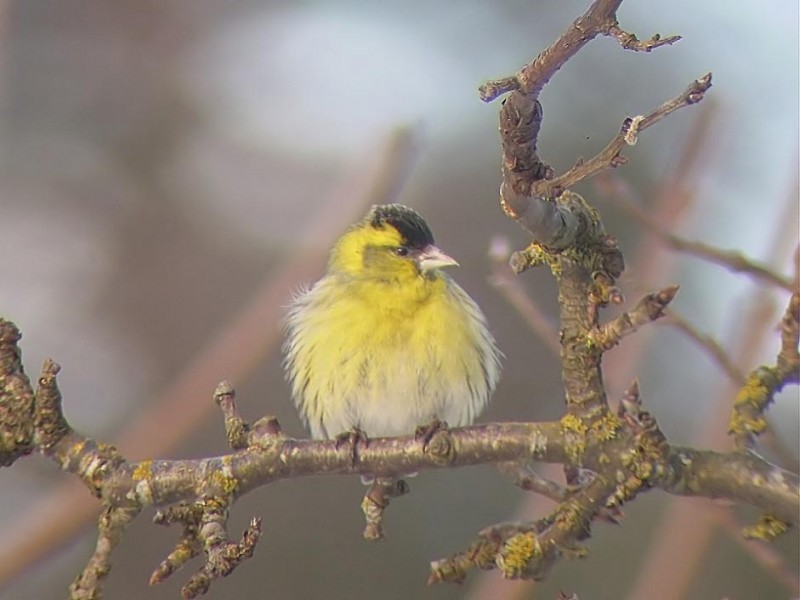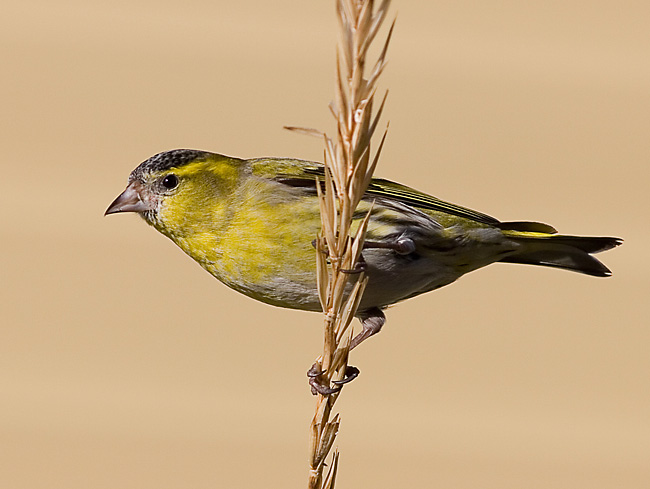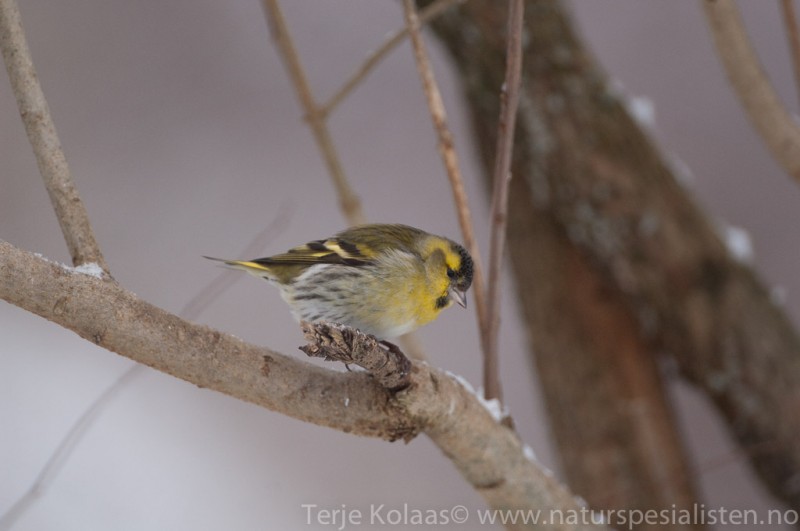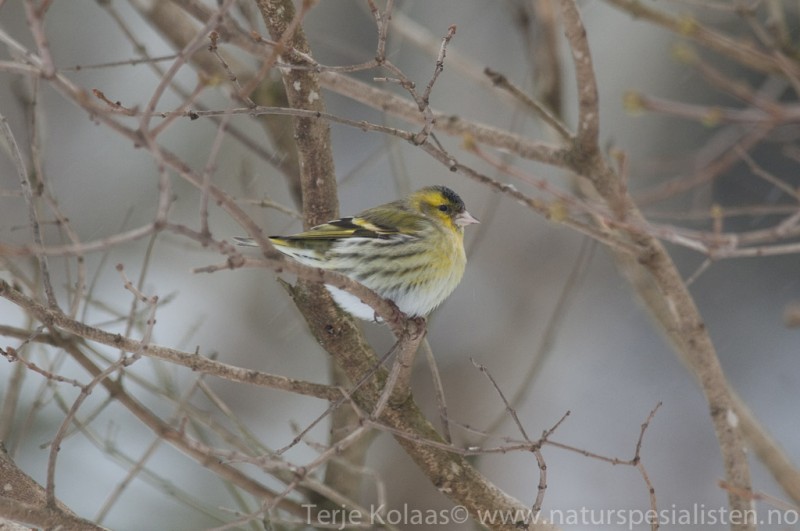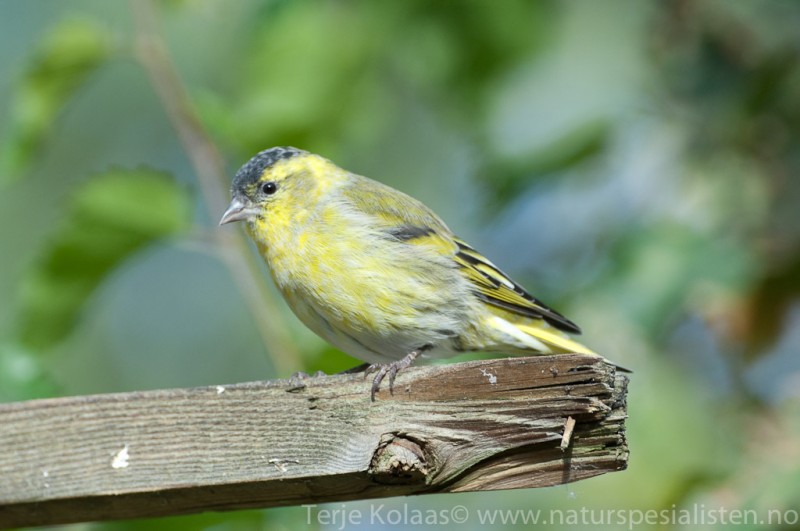Snow Bunting (Plectrophenax nivalis)
Siskin (Spinus spinus)
Easily recognized bunting with highly contrasting plumage. Tail with black center, boldly framed by white edges and white rump in all plumages. Males with white wings with black hand. Adult females with most inner parts of wings white, juveniles with white wing-bars only. A flock usually has a few adult males which gives away the species with their flashing white wings. Summer plumage of male white with black back, bill and legs. Female less pure white, with buffish head and cheeks. Juveniles mostly grey. Though most of adults white on wing is missing, the tail-pattern is diagnostic in flight also in young birds. In winter plumage the black parts of the plumage turn more brown and buff in both sexes.
Sound:Contact call a short, melodic and rapidly descending "peeuu". Often alternating with a rattling "trrreet". "Peeuu"-call quite similar to Lapland Bunting, but harder, purer in tone and less nasal. Song simple and melodic. 2-5 syllable motifs with fairly wide tonal range. Can be confused with Lapland Bunting, but is much purer in tone with a less jingling timbre. Local dialects.
Song:
Distribution:
Wikipedia: map (se also Xeno-canto below)
Ecology:Birdlife ecology
Links:
Observation.org Latest observations
Image search Flickr NB! May give other species
CCSmall green and yellow finch with contrasting dark wings and tail. Underparts whitish with grey streaking. Secondaries, inner primaries and outer tail feathers with yellow base. Relatively long and pointed bill as opposed to Serin. Male distinct with black crown and bib, bright yellow chest, throat and hind-cheeks. Female less contrasty, with more prominent streaking. Juveniles paler and duller than adults, with even heavier streaking than females.
Sound:Distinct calls and song. Most often heard is the sharp and disyllabic contact call: "doo-lee", with both notes descending. Sometimes given a in monosyllabic manner "dlyy". The contact call is also prominent in the improvised song. Other typical sounds in the song includes a peculiar wheeze, like someone sucking their teeth, and lots of expert mimicry.
Song:
Distribution:
Wikipedia: map (se also Xeno-canto below)
Ecology:Birdlife ecology
Links:
Observation.org Latest observations
Image search Flickr NB! May give other species
CC
 English
English Albanian
Albanian
 Armenian
Armenian
 Bulgarian
Bulgarian
 Catalan
Catalan
 Croatian
Croatian
 Czech
Czech
 Danish
Danish
 Dutch
Dutch
 Finnish
Finnish
 French
French
 Georgian
Georgian
 German
German
 Greek
Greek
 Hungarian
Hungarian
 Italian
Italian
 Latvian
Latvian
 Lithuanian
Lithuanian
 Macedonian
Macedonian
 Norwegian
Norwegian
 Polish
Polish
 Portuguese
Portuguese
 Romanian
Romanian
 Russian
Russian
 Sami : Lule sami
Sami : Lule sami
 Sami : North sami
Sami : North sami
 Sami : South sami
Sami : South sami
 Scientific names
Scientific names
 Serbian
Serbian
 Spanish
Spanish
 Swedish
Swedish
 Ukrainian
Ukrainian

